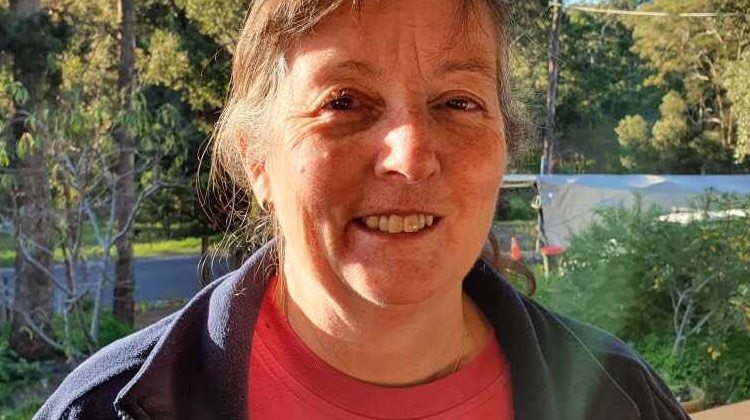Volunteer English teachers are helping refugees overcome social isolation

Relationships fostered by Melbourne Polytechnic’s Volunteer Tutor Scheme, part of the Adult Migrant English Program (AMEP), are helping refugees to succeed.
Jenny is a volunteer teacher who has adapted her weekly English lessons to video call to support her Syrian student, Naifa, through Covid-19.
“I was looking into the Asylum Resource Centre for some time, trying to work out how I could support people in learning English, when I became aware of the AMEP program. I was matched with Naifa, a Syrian refugee, two years ago, and we’ve been having weekly English lessons ever since, Jenny said.
“Coronavirus means we have had to transition to video calls for our lessons. It’s different, but actually has some unforeseen benefits. Because of Naifa’s background as a teacher in Syria, her default position is to read – but the video calls are encouraging her to speak, which is slowly building her confidence. Seeing Naifa on the screen means I can see her reactions, and try different tactics if I think she does not understand. I know her well now, so I can see if she doesn’t quite understand something.
“Naifa and her family thank me profusely each and every week for the lessons making the Volunteer Tutor Scheme extremely rewarding to be part of. When you see something gelling in Naifa’s head, and can share a joke because she ‘gets it’, it’s fantastic. Every now and again we have a giggle. Aside from that, Naifa’s passion in life is cooking and, before coronavirus, she would bake delicious treats for us to enjoy every week, so I’m sad to be missing out on those at the moment! It’s helping me to keep a routine during this time as well
“My goal is to give Naifa confidence to join community groups so she can integrate into society more. I’ve been looking into opportunities for us to go together and socialise. Last year, we went out on my birthday to a café and for a drive around local area. After that, she took her family out to the same places. I think I’m encouraging her to get out more.
“Coronavirus is a worrying time for Naifa. At the moment, the family are not even going shopping because her mother is 98. Our lessons cover English conversation, and we’ve learned about how to call 000 in an emergency. Whatever is on Naifa’s mind that week, we will talk about.
Student, Naifa, 80, said: “My family and I moved to Australia three years ago, from Syria. I was a teacher at home, but now I have had to learn a whole new language.
“We are happy and thankful to Australia and Australian people, like my English teacher Jenny, for helping. In our country, there is a big war.
“I’ve had lessons with Jenny for two years. My English has improved a lot. I can now go to buy something or go to the shop and feel confident. I have a nice time talking and reading in my lessons with Jenny. She is a good friend to me here. She gives me books and takes me out for an interesting time.
“Before Coronavirus, I was meeting Jenny once a week, but now we are using WhatsApp to have conversations. It is still good but Coronavirus means it is a hard time for us. We have been alone for one month because our mother is so old. My sister helps us by leaving food outside.”
Melbourne Polytechnic’s Volunteer Tutor Scheme (VTS) is a service within the Adult Migrant English Program (AMEP). The VTS recruits, trains and deploys volunteers from the wider community to support newly arrived refugees and migrants to practise English language skills and learn about life in Australia. Due to the coronavirus situation, all activity is now being undertaken remotely.